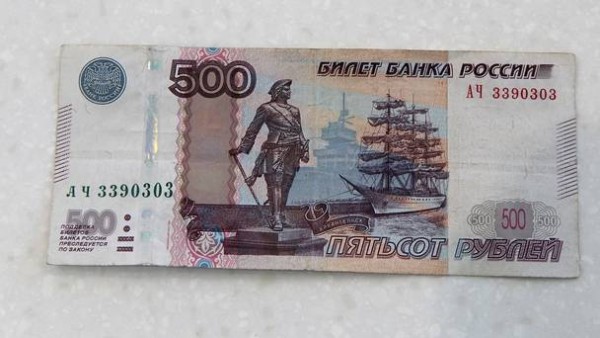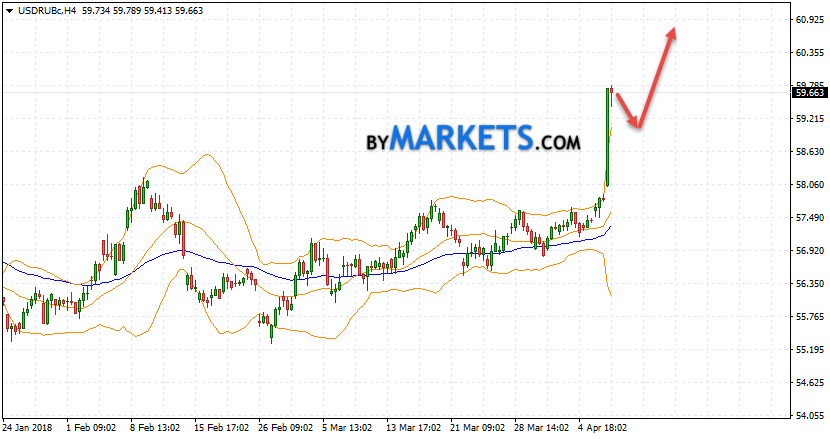
The Russian ruble hit its lowest level against the dollar since November 2016, as tensions surrounding Syria intensify.
The currency briefly hit 65 Roubles to the Dollars after an early Wednesday tweet by President Donald Trump suggested that the U.S. was ready to launch missiles into Syria.
Trump has canceled a South American trip to stay in the U.S. The White House said this was in order to “oversee the American response to Syria and to monitor developments around the world.” U.S. allies U.K. and France have said that those responsible for an alleged chemical attack in Syria last week should be held to account and commercial airlines have been issued with a warning over airspace near Syria.
Meanwhile, Russia — who backs Syria’s government — said Sunday that military interference where Russian forces have been deployed could “lead to very grave consequences.”
Last Friday’s decision to place sanctions on some of Russia’s biggest names, including Rusal’s Oleg Deripaska and Gazprom’s Alexey Miller had already sent shockwaves throughout Moscow’s markets.
Ruble’s future
 The ruble has shed more than 11 percent in value against the dollar this week and the Financial Times has reported it is on track for its worst week since 1999.
The ruble has shed more than 11 percent in value against the dollar this week and the Financial Times has reported it is on track for its worst week since 1999.
Russian authorities have vowed to minimize the impact from U.S. sanctions, suggesting markets need time to acclimate to the new measures.
Dean Tyler, global head of fixed income at investment firm Exotix Capital, told CNBC’s “Worldwide Exchange” Wednesday that he could only see the ruble continuing to weaken from here.
“Miss (Elvira) Nabiullina, the head of the central bank, has indicated that she’s comfortable with the ruble being a shock absorber for this kind of pressure,” he said.
Tyler added that Western allies would, therefore, find it hard to hurt Russia with this kind of sanction. “It sells oil in dollars. Any pressure such as this pushes the oil price up so Russia effectively receives more dollars per barrel and therefore more rubles,” Tyler added.
Tyler expects the sanctions on Russia to actually present a buying opportunity, but investors should wait until the Syrian situation had more clarity and there was less volatility.
Meanwhile, Derek Halpenny, the European head of global markets research at Japanese financial firm MUFG, told CNBC by email Wednesday that the bottom for the Russian currency may now be priced in.
“The macro backdrop prior to this was quite good so there is certainly a lot of scope for the move to reverse notably if the war escalation risks recede and we do not see further sanctions,” he said.
Halpenny added that the Russian government would probably also sell more dollars to help contain ruble losses.
CNBC

Leave a Reply
You must be logged in to post a comment.